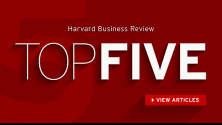January is a season of job reflection, and, with myriad opportunities available, IT professionals have updated their thinking on what it means to have a great career. With the “Great Resignation” underway, have you reflected lately on your talent recruitment and retention efforts?
“After more than two years working in a remote environment, employees fully understand that the model for work has changed forever. Flexibility is now endless for key talent to determine where they want to live geographically, who they want to work for and how they find their dream job,” says Matt Diamond, CIO of McAfee. “The technology sector is leading the way in this transformation and embracing change throughout the job market.”
We asked CIOs who recently won the 2021 Georgia CIO of the Year ORBIE Awards how their organization’s approach to talent recruitment and retention has evolved. The awards were presented by the Georgia CIO Leadership Association, a professional community that annually recognizes CIOs for their excellence in technology leadership.
Here are three strategies that can help you attract - and keep - scarce talent in the year ahead.
Build an IT culture that nurtures individuals’ passions and curiosities
Large Corporate CIO of the Year

Matt Diamond, CIO, McAfee: For CIOs, this macro level change in the talent market is both a recruiting asset and a chance to cement positive workplace culture changes. The ability to recruit the best talent without the limitations of geographical boundaries has greatly impacted the ability to grow our core talent, capabilities, and diversity. Leaders must also increase the organization’s capability to retain both the talent that already exists and the talent that has recently been recruited. This is especially important in the COVID-19 environment, where many new employees are starting a new role in a remote setting, often without the benefits of in-person introductions to their department or group function.
We, as leaders, must also connect to both the hearts and minds of the individuals in our organizations, rather than just recognizing talent and skill, as has been done in the past. The organizational culture must allow everyone to see how they directly contribute to the company mission, which they believe in, and enable leaders to align individuals’ work with both their passions and curiosities.
At McAfee our team members are “free to be.” Which means individuals can trust their leaders and know they are in a safe environment where they can express their true selves. We actively work to align the responsibilities of an individual’s role to their passions. Additionally, we enable them to express their true selves and connect with others within the company through employee communities and interest-based groups. Organizations that focus on the total person will thrive in our new normal.
Offer a career path, not just a job
Enterprise CIO of the Year

Roxanne Seymour, SVP & CIO, Serta Simmons Bedding: The pandemic brought out the best in most organizations, and the IT organization has had to adapt as well. What has changed for the better is that we are now casting our recruiting net far and wide. We have the opportunity to recruit the best talent across the country, not just local talent, to our headquarters in Georgia. We can offer more flexibility for remote work and multiple ways to collaborate and engage. Interviews and onboarding happen remotely, and we provide a great experience during this process, which in-turn establishes some reassurance to prospective new employees.
The “great resignation” is forcing CIOs to rethink their IT talent strategy. While it can’t all be about compensation-related tactics, it has to be a combination of how you offer more to an employee, while remaining competitive in the marketplace. CIOs have to think about and address employee development opportunities and offer up more of a career path, rather than a specific job. While this may not deter individuals from leaving, it will help employees realize that there may be more to a job than just its pay.
[ What skills will be most in-demand this year? Read: IT careers: 5 flourishing and 4 fading IT skills for 2022 ]
Consider what your interview process says about your IT organization
Large Enterprise CIO of the Year

David Brooks, SVP & CTO, Cox Automotive: We have doubled down on the experience candidates have as part of our interview process. First impressions are key, and we recognize candidates are sizing us up at the same time we are learning about them.
We have tried to shorten our interview processes and ensure they reflect the practices of a solid technology team. Inefficient or slow processes could lead candidates to view us as bureaucratic, so we focus on speed and efficiency. Job seekers also want to know they will be working with a solid technology team, so we ensure that our interview processes gives candidates a feel for the kind of technology talent we have on board as well as the types of problems and technologies they’d get to work on. IT leaders should focus on selling their company as much as the candidates are selling their skills.
[ Get exercises and approaches that make disparate teams stronger. Read the digital transformation ebook: Transformation Takes Practice. ]







